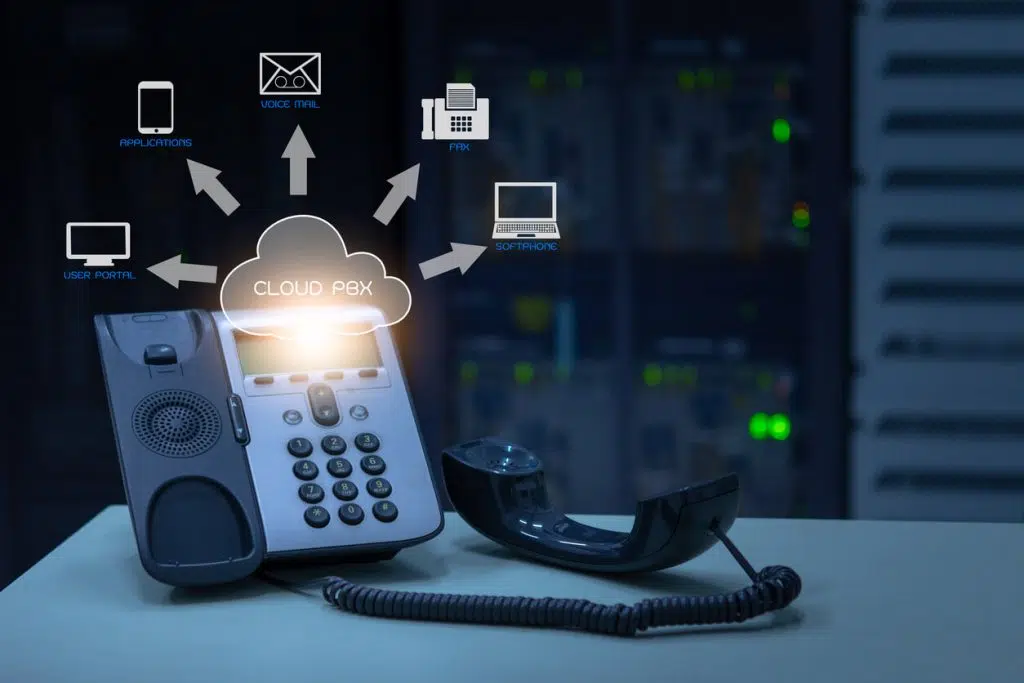Securing business communication channels is more important than ever, as both VoIP and traditional phone systems face unique and evolving security threats. VoIP systems offer businesses greater flexibility and reduced costs, but they also come with risks such as data breaches, eavesdropping, and malware attacks. On the other hand, traditional phone systems, while more established, are still vulnerable to threats like toll fraud, wiretapping, and unauthorized access.
Protecting these systems is essential for safeguarding sensitive information, maintaining customer trust, and avoiding costly disruptions. By implementing comprehensive safeguards and proactive monitoring, organizations can fortify their communication networks against these threats. Consult with IT Support Los Angeles experts to harness the power of VoIP for your business.
In this blog, we will explore key strategies to protect both VoIP and traditional phone systems, providing actionable insights to enhance security across all communication channels.
What is VoIP?
VoIP, or Voice over Internet Protocol, is a technology that enables voice communication over the Internet instead of traditional phone lines. It converts voice signals into digital data for online transmission, allowing users to make calls from computers, smartphones, or VoIP-enabled devices. VoIP offers flexibility, cost savings, and features such as video calls, messaging, and file sharing, making it a popular choice for businesses and individuals.
8 Ways to Protect VoIP and Traditional Phone Systems
- Strong Authentication and Password Policies
Implementing strong authentication and password policies are crucial components in protecting both VoIP and traditional phone systems from security breaches. Implementing multi-factor authentication can add an extra layer of security by requiring users to verify their identity through multiple methods before accessing the system.
Additionally, enforcing complex password requirements, such as combinations of upper and lower case letters, numbers, and special characters can help prevent unauthorized access. Regularly updating passwords and conducting security audits further safeguard these communication systems against cyber threats.
- Regular Software Updates and Patch Management
Regular software updates and effective patch management are essential ways to protect VoIP and traditional phone systems from potential security threats. Outdated software can leave systems vulnerable to cyberattacks, which may compromise sensitive information or disrupt communication services.
By partnering with a Managed IT Services Los Angeles provider, you can mitigate vulnerabilities that cyber attackers could exploit. Regularly updating your software helps address known security flaws and improves system performance, while efficient patch management ensures that any newly discovered vulnerabilities are quickly resolved.
- Firewalls and Session Border Controllers (SBCs)
Firewalls and Session Border Controllers (SBCs) are essential for safeguarding VoIP and traditional phone systems against security threats. Firewalls serve as the initial defense by monitoring and regulating incoming and outgoing network traffic according to established security protocols. By implementing firewalls, you can effectively prevent unauthorized access to your communication network.
In contrast, Session Border Controllers (SBCs) add an extra layer of security by managing signaling and media streams in real time. SBCs offer features such as encryption, access control, and threat detection, which help maintain the integrity and confidentiality of voice communications.
- Call Monitoring and Logging
Call monitoring and logging are critical ways to safeguard VoIP and traditional phone systems. By implementing call monitoring, businesses can track and analyze communication patterns to identify any suspicious activities or potential security breaches.
Additionally, call logging maintains a record of all incoming and outgoing calls, which can be crucial for investigations or audits. These measures help ensure the integrity of phone systems and play a significant role in compliance with regulatory requirements, as well as in protecting sensitive information exchanged through these communication channels.
- Limit Physical Access to Equipment
Limiting physical access to equipment is a crucial way to protect both VoIP and traditional phone systems. By restricting access to the hardware components of these systems, you can prevent unauthorized individuals from tampering with or compromising the integrity of the communication network. This approach helps safeguard sensitive information and maintain the reliability of your phone services.
Security measures such as locks, surveillance cameras, and access control protocols can significantly reduce the risk of physical attacks. Additionally, regularly monitoring and auditing physical access logs can help detect suspicious activities and ensure that only authorized personnel have access to the equipment.
- Disable Unused Lines and Voicemail
One fundamental way to protect both VoIP and traditional phone systems is to disable any unused lines and voicemail features. Unused lines can serve as vulnerable points of entry for hackers seeking to exploit system weaknesses.
By deactivating these lines, you can decrease the potential for unauthorized access and protect your communication network from security breaches. Similarly, disabling voicemail on unused extensions prevents unauthorized users from accessing sensitive information or using the system for malicious purposes.
- Implement Call Blocking and Filtering
One of the key ways to protect both VoIP and traditional phone systems is to implement call-blocking and filtering measures. Call blocking prevents unwanted calls from reaching your phone system, which can help reduce the risk of falling victim to scams or malicious attacks.
By filtering incoming calls based on specific criteria, such as known spam numbers or suspicious patterns, you can further enhance the security of your communication network. Additionally, these measures can improve your phone system’s overall efficiency by reducing distractions and nuisance calls.
- Educate Employees on Security Practices
Educating employees about security practices is a vital way for protecting VoIP and traditional phone systems from potential threats. When employees understand best practices such as creating strong passwords, being cautious when sharing sensitive information over the phone, and recognizing common phishing tactics, businesses can significantly lower the risk of cyber attacks targeting their communication systems.
Regular training sessions, clear security policies, and ongoing communication about potential threats help reinforce the importance of maintaining a secure environment for both VoIP and traditional phone systems.
Conclusion
Protecting VoIP and traditional phone systems is essential for maintaining secure and reliable communication within an organization. By implementing robust security measures, such as encryption, strong authentication, regular updates, and employee training, businesses can significantly reduce the risk of unauthorized access, data breaches, and fraud. With these proactive strategies, organizations can protect sensitive information, enhance customer trust, and ensure uninterrupted service.











